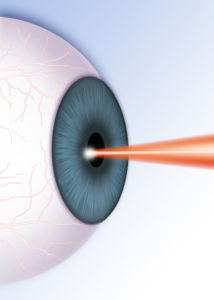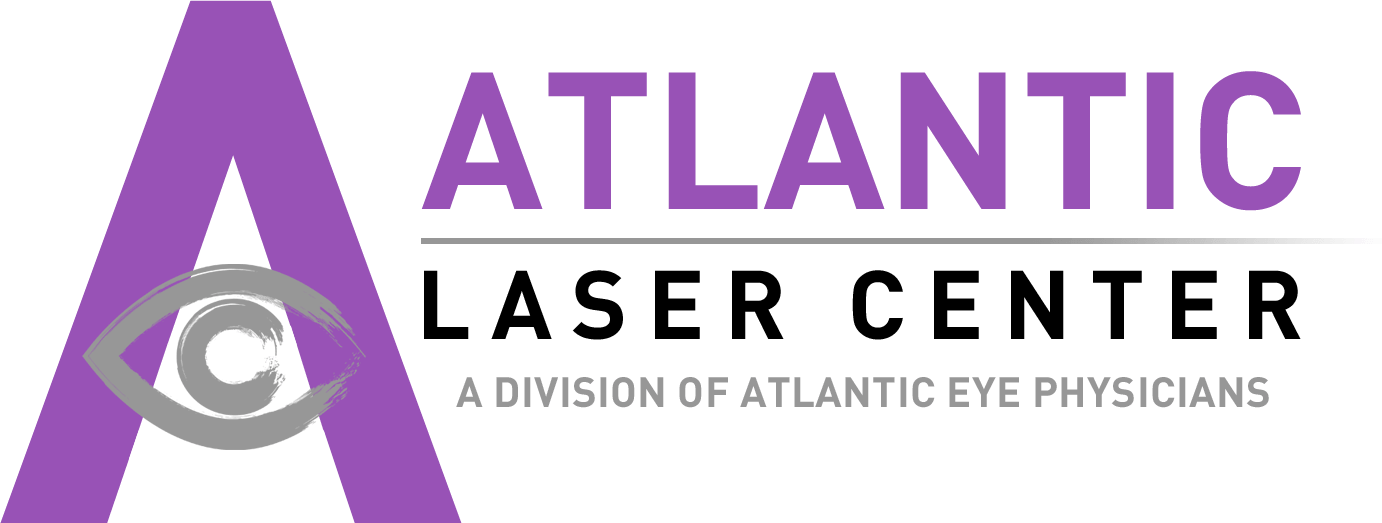Candidates for PRK Surgery
 PRK is a low-risk surgery with a high success rate. The FDA approved excimer lasers, which are used to reshape the cornea, for use in PRK surgery in 1995. Since then, millions of patients have undergone laser vision correction procedures such as PRK. If you suffer from blurry vision due to nearsightedness, farsightedness, or astigmatism, you may be wondering if you are a good candidate for PRK surgery. In this blog post, Dr. Daniel Goldberg and the team at Atlantic Laser Vision Center explain the factors that go into determining LASIK candidacy. To find out if you are a good candidate for PRK surgery, schedule a LASIK screening appointment at our Monmouth County, NJ practice.
PRK is a low-risk surgery with a high success rate. The FDA approved excimer lasers, which are used to reshape the cornea, for use in PRK surgery in 1995. Since then, millions of patients have undergone laser vision correction procedures such as PRK. If you suffer from blurry vision due to nearsightedness, farsightedness, or astigmatism, you may be wondering if you are a good candidate for PRK surgery. In this blog post, Dr. Daniel Goldberg and the team at Atlantic Laser Vision Center explain the factors that go into determining LASIK candidacy. To find out if you are a good candidate for PRK surgery, schedule a LASIK screening appointment at our Monmouth County, NJ practice.
Specific PRK Surgery Requirements
Although PRK is safe and effective, most patients opt for LASIK surgery, which offers comparable results with a shorter recovery period and less severe side effects. However, patients that are not good candidates for LASIK may still be able to undergo permanent laser vision correction surgery in the form of PRK. You may be a good candidate for PRK if you:
- Have thin corneas: Patients with thin corneas are not good candidates for LASIK because the remaining corneal foundation may not maintain its stability after flap creation. PRK surgery does not require a corneal flap, so all of the underlying stromal tissue is available for reshaping. Therefore, patients with thinner corneas may qualify for PRK surgery.
- You have had previous LASIK surgery: If patients have had a previous LASIK procedure, but require an enhancement treatment to fine-tune vision, PRK can be performed.
- You play contact sports: The corneal flap that is created during LASIK surgery could become dislodged due to injury. If you play contact sports such as football, hockey, or basketball, a sports-related injury to the face could cause problems with the corneal flap. In these cases, PRK may be a better treatment option.
- You have a physical job: Similar to athletes, patients that have physical jobs, such as those in the armed forces, are at a higher risk of experiencing an injury that causes the corneal flap to become disrupted.
General Laser Vision Correction Surgery Requirements
There are also a number of general requirements that PRK patients must meet, including:
- The patient’s vision prescription should be stable for at least two years.
- The degree of refractive error should be between +5.00 and -12.00 diopters.
- Patients should be in generally good health. Those with vascular disease, immunodeficiency, autoimmune disease, diabetes, and rheumatoid arthritis may not be good candidates for PRK.
- Patients with certain eye conditions, such as glaucoma and keratoconus, are not good PRK candidates.
- Patients that take certain medications, including Accutane, Cordorone, Imitrex, and steroids, are generally not good candidates for PRK.
- Patients should not be pregnant or nursing when undergoing PRK surgery.
Schedule a PRK screening at our practice to find out which treatment option is best suited to your needs. During the appointment, we will review your medical history and any medications you are taking, determine your degree of refractive error, and measure your corneal thickness and pupil size. Contact Atlantic Laser Vision Center today.


